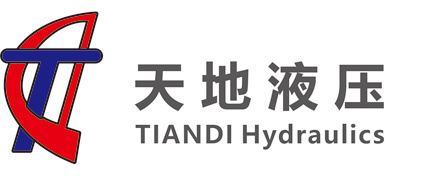GET THE LATEST NEWS FROM THE COMPANY
NEWS CATEGORY
Understanding DCV Valves: Essential Components in Hydraulic Systems
Published:
2025-06-26 12:20
DCV valves, or Directional Control Valves, are critical components in hydraulic systems that manage the flow direction of hydraulic fluid. These valves are essential for controlling the movement and operation of various hydraulic machinery and equipment, making them a vital part of many industrial applications.
At their core, DCV valves allow operators to control the flow of hydraulic fluid in a system, determining the direction in which the fluid travels. This function is crucial for the proper operation of hydraulic cylinders, motors, and other actuators. By controlling the fluid flow, DCV valves enable the precise movement and positioning of machinery, ensuring efficiency and safety in operations.
There are several types of DCV valves, including manual, mechanical, solenoid-operated, and pneumatic options. Each type has its own mechanism for controlling fluid flow, allowing for tailored solutions based on specific application requirements. For instance, solenoid-operated DCVs utilize electromagnetic coils to shift the valve position, providing quick and automated control in various industrial processes.
In addition to their basic functionality, DCV valves are designed with various configurations, such as two-way, three-way, and four-way designs. The number of ways a valve can direct fluid flow determines its application—three-way valves, for example, can divert flow between two different outlets or combine flow from two sources. Understanding these configurations is essential for professionals looking to select the right valve for specific hydraulic applications, maximizing system performance and reliability.
Furthermore, the selection of a DCV valve should consider factors such as flow rate, pressure rating, and environmental conditions. High-quality materials and construction are vital for ensuring durability and resistance to wear, especially in demanding industrial environments. Regular maintenance and testing can also prolong the lifespan of DCV valves, preventing costly downtime and ensuring operational efficiency.
In conclusion, DCV valves are indispensable in the realm of hydraulic systems, providing essential control over fluid movement. For professionals in the industrial equipment and components sector, understanding the different types, configurations, and operational considerations of DCV valves is imperative. By ensuring the proper selection and maintenance of these valves, companies can enhance the efficiency and reliability of their hydraulic systems, ultimately leading to improved performance in their operations.
At their core, DCV valves allow operators to control the flow of hydraulic fluid in a system, determining the direction in which the fluid travels. This function is crucial for the proper operation of hydraulic cylinders, motors, and other actuators. By controlling the fluid flow, DCV valves enable the precise movement and positioning of machinery, ensuring efficiency and safety in operations.
There are several types of DCV valves, including manual, mechanical, solenoid-operated, and pneumatic options. Each type has its own mechanism for controlling fluid flow, allowing for tailored solutions based on specific application requirements. For instance, solenoid-operated DCVs utilize electromagnetic coils to shift the valve position, providing quick and automated control in various industrial processes.
In addition to their basic functionality, DCV valves are designed with various configurations, such as two-way, three-way, and four-way designs. The number of ways a valve can direct fluid flow determines its application—three-way valves, for example, can divert flow between two different outlets or combine flow from two sources. Understanding these configurations is essential for professionals looking to select the right valve for specific hydraulic applications, maximizing system performance and reliability.
Furthermore, the selection of a DCV valve should consider factors such as flow rate, pressure rating, and environmental conditions. High-quality materials and construction are vital for ensuring durability and resistance to wear, especially in demanding industrial environments. Regular maintenance and testing can also prolong the lifespan of DCV valves, preventing costly downtime and ensuring operational efficiency.
In conclusion, DCV valves are indispensable in the realm of hydraulic systems, providing essential control over fluid movement. For professionals in the industrial equipment and components sector, understanding the different types, configurations, and operational considerations of DCV valves is imperative. By ensuring the proper selection and maintenance of these valves, companies can enhance the efficiency and reliability of their hydraulic systems, ultimately leading to improved performance in their operations.
dcv valve
previous page
previous page
Related news

